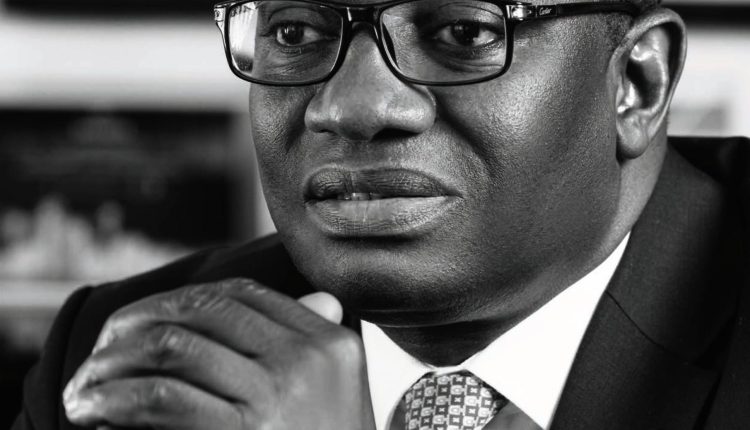Bauchi: Generosity deserves kindness in return
By Usman Abdullahi Koli
Communities have mirrors. Sometimes they arrive in crisis. Other times they appear in conversation, in the quiet way a discussion turns into reflection. The conversation around Dr. Bala Maijama’a Wunti is one such mirror for Bauchi. What we see is not only the story of a man. It is the reflection of who we are, of how we measure service, loyalty, and human goodness.
Bauchi has always celebrated political savvy. We admire clever moves and sudden reversals. We revel in the vitality of sharp strategies and the thrill of unexpected outcomes. That energy is part of what makes this place alive. But it can also blind us. It can make us forget the people who built the foundations quietly, the hands that steadied the community when no one was watching. When their names enter the conversation, we sometimes greet them with suspicion rather than gratitude.
Bala Wunti’s story begins far from privilege. He grew up near the palace drums but with none of the comforts that should have eased a childhood. Orphaned early, he carried burdens that would have crushed many. Yet he did not yield to hardship. He learned discipline from necessity, resilience from scarcity, and courage from loneliness. Through faith, patience, and relentless effort, he earned his place in the NNPC and served there for more than thirty years. That journey alone would demand our respect. What follows is what defines his life.
The true measure of a public life is the lives it touches. Bala Wunti’s service extends beyond titles, offices, and speeches. Students who had abandoned hope received school fees. Youths who dreamed of enterprise received capital. Families facing eviction found stability. Mosques, hospitals, and schools thrived under his quiet care. Hundreds performed pilgrimage because someone remembered them when the world moved on. Today, there are people in Bauchi who sleep beneath roofs he made possible, children learning in classrooms he quietly supported, families breathing easier because he intervened without seeking applause. These acts are tangible, human, transformative.
He never sought attention. He encouraged beneficiaries to speak little of his assistance. In a culture that equates charity with spectacle, that humility is extraordinary. It separates him from the ordinary, the performative, and the noisy. It marks him as a man whose conscience is as strong as his capability.
Yet, recently, suspicion has arisen. Suddenly, a lifetime of silent service is measured against labels it does not deserve. Those who admire him, those who merely see his potential in leadership, are the ones prompting this backlash. Bauchi has cultivated a dangerous reflex: to celebrate generosity at a distance but to distrust it when it approaches the realm of possibility. We have applauded benefactors while they remain distant. We question them when they become close. We reward service in the abstract but fear its concrete presence.
Other communities handle this differently. Kano treats its benefactors as institutions. Jigawa honours those who ease hardship. Gombe protects those who invest in people. Across the South, philanthropists with decades of service are woven into civic memory. Politics may divide, but gratitude remains intact. They understand that the fabric of society depends on preserving generosity, not undermining it.
If Bauchi persists in punishing or doubting its benefactors, the lesson for the next generation will be clear. Service and sacrifice will be treated as liabilities. Courage and commitment will retreat. Opportunists will fill the spaces left behind. Decay does not roar. It whispers. It creeps. And it begins the moment we fail to protect what is good.
Through the noise, Bala Wunti has remained composed. No press releases. No hired voices. No attempts at counterattack. Some mistake this calm for weakness. In truth, it is discipline, dignity, and deep understanding. He knows the value of silence when the world’s conversation is shallow. He knows that truth outlasts gossip.
This is not about one election or political calculation. It is about identity. If a man whose life has been hallmarked by service can suddenly be treated as a threat simply because of admiration, we must ask what example we are setting. What message do we send to young men and women rising from hardship and carrying communities along? That service invites suspicion? That generosity invites mockery? That is no lesson worth teaching.
We can still choose differently. Respect need not imply endorsement. Appreciation does not demand alignment. Recognition is enough. Acknowledging a man who built lives quietly honors both him and the society he served. It reminds us what it means to value human contribution above political convenience.
History will remember Bala Wunti for the lives he transformed. It will mark the schools rebuilt, the hospitals revived, the families steadied, the mosques renewed. The greater question is what history will record about us. Will it recount a community that protected its benefactors, or a community that allowed fleeting impatience to eclipse steady virtue?
Societies fail not because talent is lacking. They fail when the brilliance that exists is mishandled, ignored, or diminished. If we do not correct our instincts now, we may wake to storms we could have tempered, seeking refuge in doors that have long since closed.
This piece is not about one man alone. It is about Bauchi. It is about a people, their memory, and their willingness to protect those who sustain them. No society rises by forgetting the hands that held it up.
Koli can be reached at [email protected].



Comments are closed, but trackbacks and pingbacks are open.